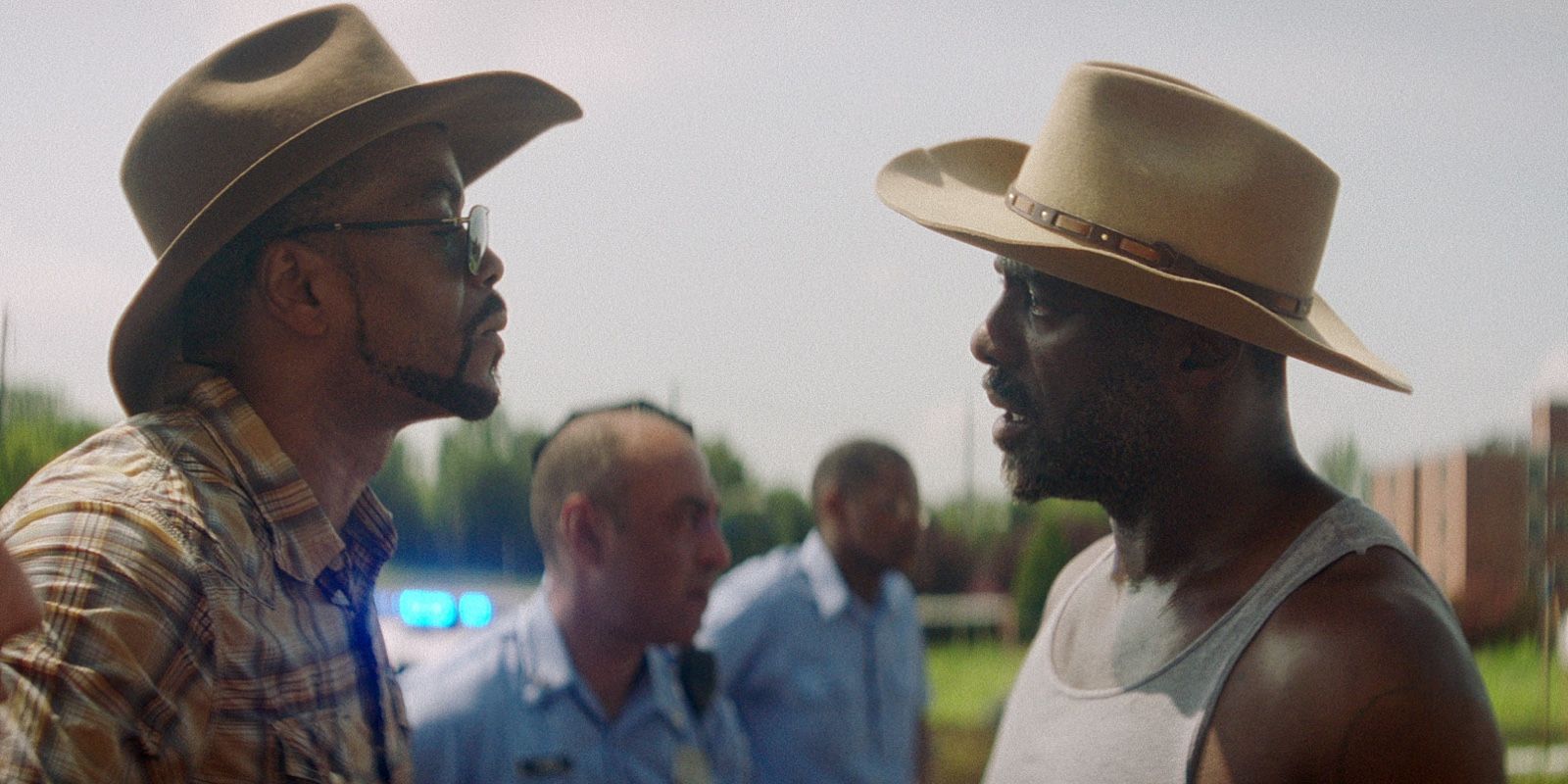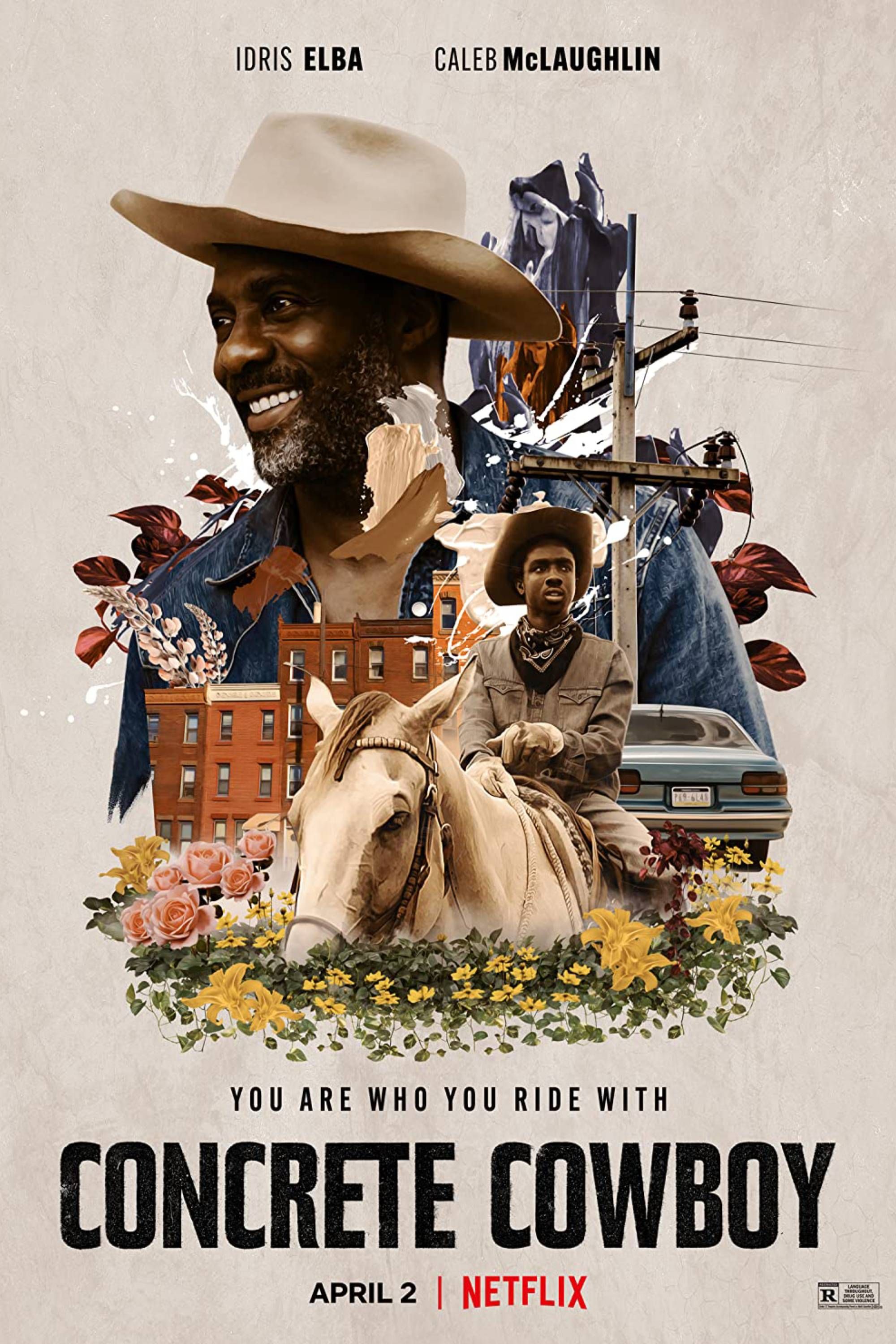Concrete Cowboy introduces audiences to Fletcher Street in Philadelphia when it arrives on Netflix April 2. The story is told through a father and son who reconnect as they discover a group of black Cowboys amidst their neighborhood.
The stellar ensemble cast is made up of gems like Lorraine Toussaint, Jharrel Jerome, and Method Man (Cliff Smith Jr.). The stars spoke to Screen Rant about learning from the real life riders their characters were based on and respecting the community they represented.
Lorraine, your character Nessie is really a historian almost for the Cowboys on Fletcher Street, and it's kind of based on a real person. Can you talk to me about what you learn from the women riders of the subculture of the black cowboys on Fletcher Street?
Lorraine Toussaint: The women riders, they hold down the family like many women in the black community do; that's no different. The mothers and daughters and grandmothers, they hold down the fort in terms of being the heart and the glue in our families.
But these women are also equally passionate about their love for their animals and for their horses, and the cowboy culture and the freedom within that. And the metaphor that you you ride it out, life is a ride, you go for a ride when things get bad; you can always ride. I mean, that love and that relationship to their horses puts them in a context that is bigger than what we see as a stereotypical community. They have something else that they are living for, and that was a real education. I didn't know about the amazing Fletcher Street cowboys and the stables. I didn't know about this community at all. It's been very educational.
Jharrel, Smush is definitely more than just a one-dimensional character; he completely disrupts stereotypes. Can you talk to me about who Smush is and what exactly excited you to play that role?
Jharrel Jerome: Yeah, exactly. That is what excited me: just the idea that, at first glance, you think you have Smush penned into a box. You think you know exactly who he is and what his arc is going to be until you start to dig deeper into him. You start to see that he's honestly just a lost soul in this community that is kind of broken in a way and kind of losing its bearings, especially with gentrification and the stables falling apart.
It's hard for Smush to believe that these stables are going to give him his chance to happiness and his chance to a full life. He just falls into the stereotypes of what is expected from somebody where he's from, and he makes a lot of wrong choices with a good heart. It's like having a bad head on your shoulders but a very good heart, and that's kind of who Smush is.
Cliff, Leroy finds himself in a tough position and almost trades in his saddle for a badge. Can you talk to me about the inner struggle he faces between community and duty?
Cliff Smith Jr.: I mean, it's just that. It's a struggle. Especially him being from that community, and we know the relationship between communities of color and policing. Which makes Leroy even more important, because being from that community, he can be a voice for those people, as far as the law enforcement part comes in. But he can also be a warning sign for the people who are in the community that, "Look, if you guys keep doing this, something may happen, and I will be forced to do my job."
So, he has this sense of duty, of course, to his badge. But there's also that sense of duty he has to the community and the people that he's grown with and learned to love over the years.
Jharrel, director Ricky Staub really does a good job of integrating the city of Philadelphia and making Fletcher Street its own character. Can you talk to me about his usage of the community of Philadelphia?
Jharrel Jerome: I think more than half of the set was actual people from the community. Even the guy who Smush is based off of was a PA on set. So, yeah, it went as far as that - and I think, actually, all of us here got to meet our real life counterpart. I think Ricky did an incredible job at sticking to his word about making this a community project, and making this not about himself and not about his career, but about the community. I think he's done just that.
Lorraine, some of these actors have never been in front of a camera before. Notably, Jamil Prattis is amazing in the film. Can you talk to me about how he helped you bond with some of these horses on set?
Lorraine Toussaint: Whenever I had a question about horses, I would call Jamil. In fact, I would call Jamil whenever I had to mount or dismount, because I trusted him to take care of me going on and off. I've told the guys this once before, but the day the horse stepped on my foot and wouldn't get off, it was Jamil that came running. I will be forever be grateful to this brother. He came running to the horse and punched it in the flank. Jamil's not big, but he gave it a good solid punch and it finally looked and just sidestepped my foot and got off my foot. And then Jamil walked me around the stables for the next two hours, saying, "Don't take that boot off. Don't take that boot off. You've got to walk that off. You've got to walk it off, walk it off."
As actors, I don't know about method, but we looked to them to just ask them things. "Well, how do I say this? Would you guys say it this way? What's the cowboy urban jargon for this line? It sounds too much like a line. What would you say in real life?" We leaned on the real people in that community.


